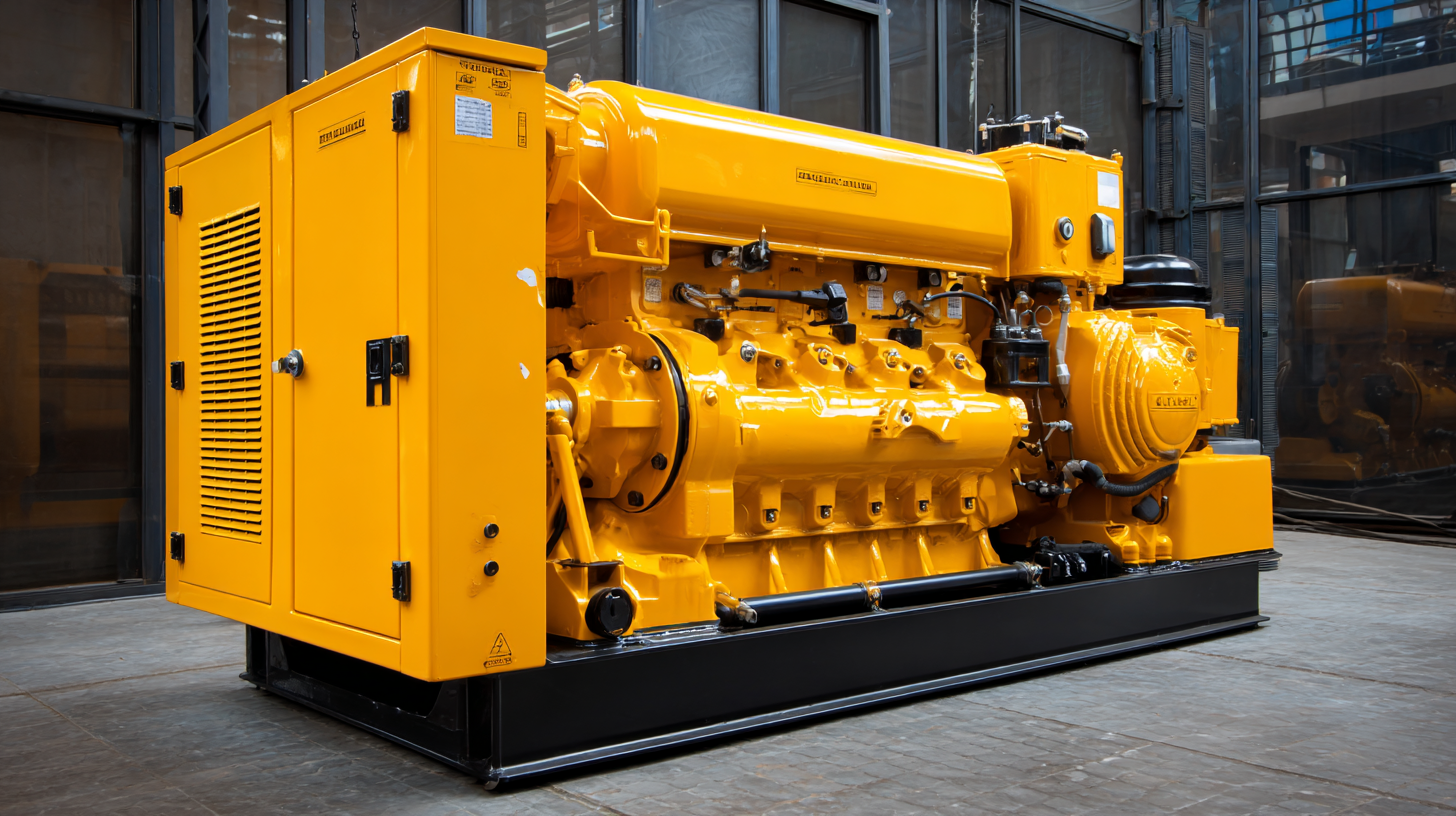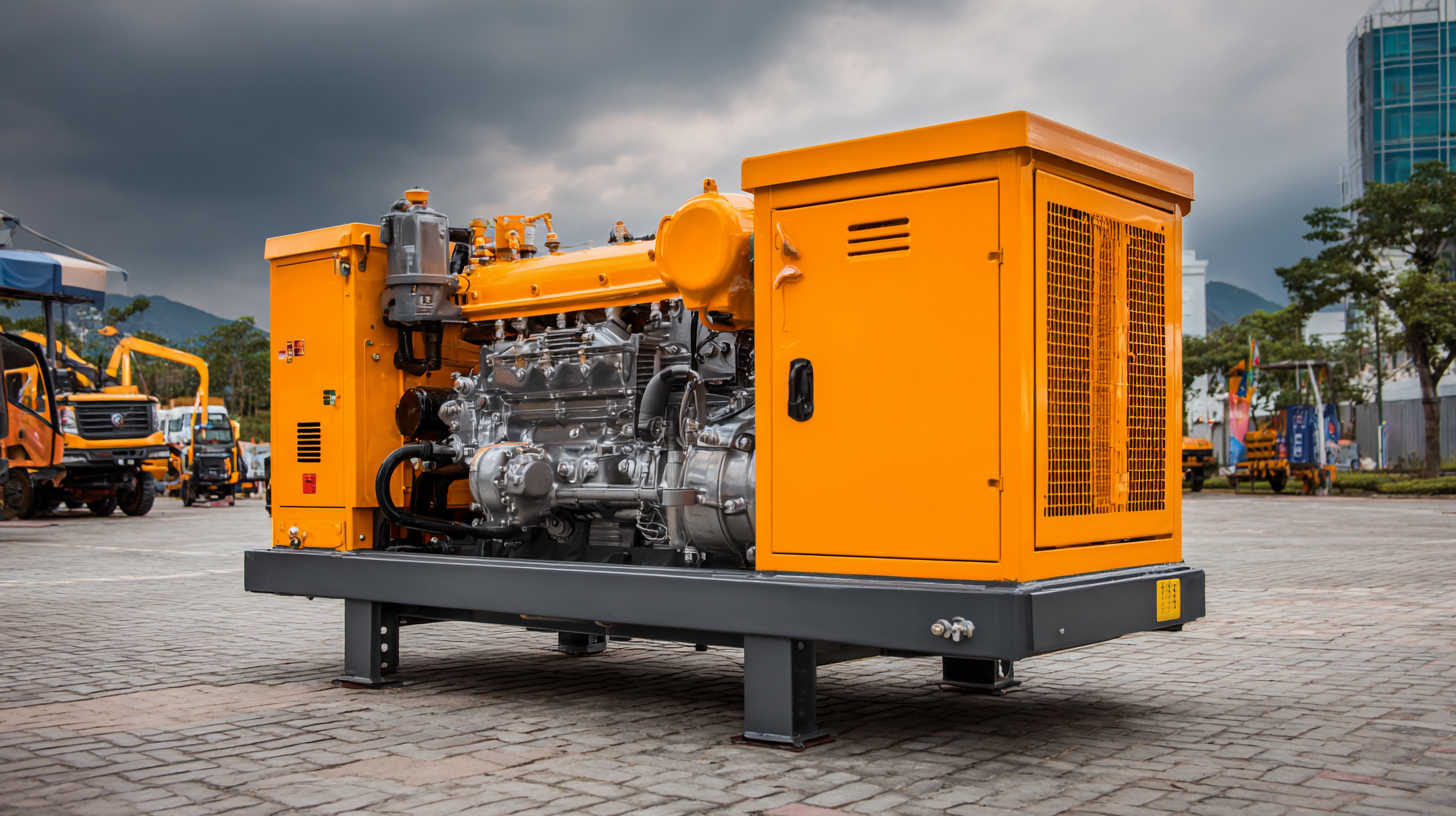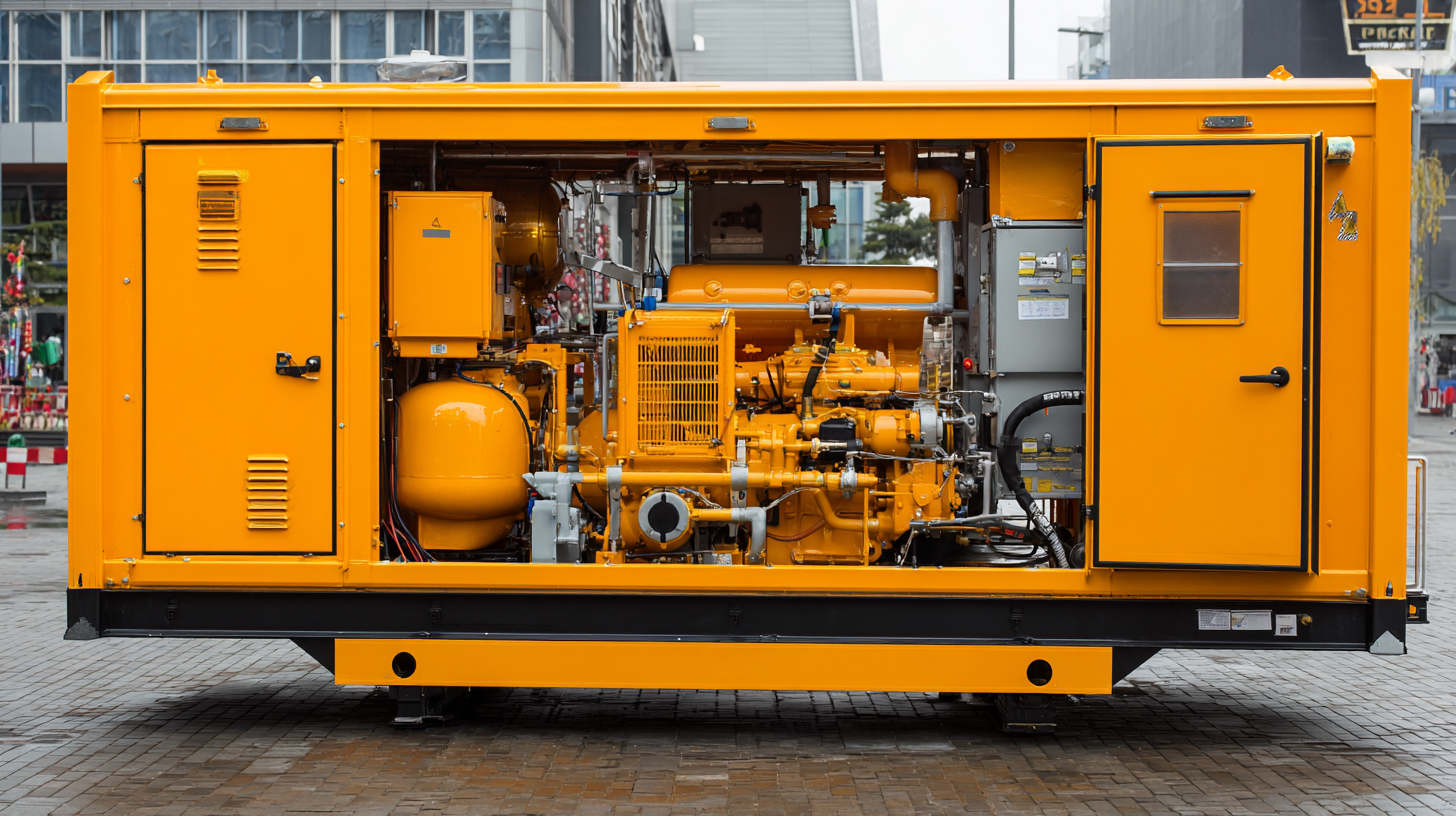
The Ultimate Guide to Choosing the Right Small Diesel Generator for Your Needs
In today’s competitive market, the selection of a small diesel generator is a critical decision for both businesses and households seeking reliable power solutions. As per the latest report from Market Research Future, the global diesel generator market is projected to witness substantial growth, with an estimated CAGR of 3.9% from 2021 to 2027, emphasizing the increasing reliance on diesel for energy production. Factors such as efficiency, durability, and fuel availability make small diesel generators a preferred choice for many. Moreover, a survey by the Diesel Technology Forum reveals that approximately 80% of respondents cited reliability as a top concern in their purchasing decisions. This guide aims to provide you with comprehensive insights into the essential features, advantages, and considerations to help you make an informed choice when selecting the right small diesel generator that meets your specific needs and operational demands.

The Importance of Power Output: Selecting the Right Generator Size for Your Usage
When selecting a small diesel generator, understanding power output is crucial. The right generator size depends on your specific usage, whether for home backup during outages, camping trips, or during emergency situations. Generators are categorized by power rating, which significantly impacts their efficiency and suitability for your needs. Generators under 75 kVA are ideal for light residential use, while those ranging from 75-375 kVA can power more demanding applications, including multiple appliances or tools.
Tips: Always calculate the total wattage of the devices you plan to power. This ensures you choose a generator that meets or exceeds your requirements without overloading. Additionally, consider how often you will use the generator; if it’s for occasional use, a portable option may be sufficient, while frequent use might warrant a more robust stationary model.
Another important factor is fuel type. Diesel generators are known for their reliability and fuel efficiency, making them excellent choices for extended usage. However, always compare the operating costs associated with different fuel types to make an informed decision that best suits your lifestyle and budget. Understanding these foundational elements will help you choose a generator that effectively meets your power needs.
Understanding Fuel Efficiency Ratings: Key Metrics for Diesel Generators
When selecting a small diesel generator, understanding fuel efficiency ratings is crucial. These ratings provide key metrics that inform potential users about the generator's operational costs and environmental impact. Fuel efficiency can vary significantly between models, often influenced by engine design, load conditions, and maintenance practices. A generator with a higher fuel efficiency rating will consume less fuel to generate the same amount of power, thus reducing operational costs and emissions over time.
In today’s market, the integration of alternative fuels such as compressed natural gas (CNG) and green hydrogen is gaining attention. These options can significantly enhance the efficiency of diesel generators while decreasing harmful emissions. As the demand for reliable and sustainable power solutions grows, understanding these advancements becomes essential for making informed choices. This knowledge not only guides consumers in their selection process but also aligns with global efforts to improve energy access and reduce environmental footprints.
Noise Levels and Environmental Impact: Choosing a Quieter Diesel Generator
 When selecting a small diesel generator, one crucial aspect to consider is the noise level it produces. A quieter generator not only enhances the overall user experience but also minimizes the disturbance to neighbors and wildlife. Many diesel generators are equipped with soundproofing technology and quieter engine designs, allowing you to operate them in more sensitive environments without causing excessive noise pollution.
When selecting a small diesel generator, one crucial aspect to consider is the noise level it produces. A quieter generator not only enhances the overall user experience but also minimizes the disturbance to neighbors and wildlife. Many diesel generators are equipped with soundproofing technology and quieter engine designs, allowing you to operate them in more sensitive environments without causing excessive noise pollution.
Tips: To further reduce noise levels, consider placing your generator on a sound-absorbing mat or within a sound-reducing enclosure. Additionally, look for models with lower decibel ratings, typically below 60 dB, which is akin to the sound of normal conversation.
Environmental impact is another vital factor when choosing a diesel generator. Modern diesel engines are designed to be more fuel-efficient and produce fewer emissions compared to older models. Selecting a generator that complies with stringent environmental regulations ensures that you operate within safe limits, contributing to a cleaner environment.
Tips: Check for generators that come with eco-friendly features, such as adjustable fuel settings and advanced exhaust systems that minimize harmful emissions. It's also beneficial to choose a generator that allows for easy maintenance and oil changes, further supporting its longevity and environmental performance.
Maintenance Requirements: Essential Considerations for Longevity of Diesel Generators
When selecting a small diesel generator, maintenance requirements are crucial for ensuring longevity and efficiency. Research indicates that regular maintenance can extend the lifespan of a diesel generator significantly, with proper upkeep recommended every 100 to 500 operating hours, depending on the manufacturer's guidelines. Key maintenance practices include routine oil changes, filter replacements, and system inspections, which not only improve performance but also enhance fuel efficiency.
Incorporating energy storage technologies can further optimize the functionality of diesel generators, especially in emergency power supply systems. These systems are essential in regions with unreliable power grids, as seen during the COVID-19 pandemic in sub-Saharan Africa, where health facilities depend on stable power for continuous care. Implementing basic maintenance guidelines, such as ensuring adequate ventilation and conducting periodic load tests, can also prevent downtime and reduce operational costs. With the growing emphasis on sustainability and environmental impact, the integration of proper maintenance and advanced energy solutions is vital for the future of diesel generators and overall energy reliability.
Cost Analysis: Comparing Initial Investment vs. Long-Term Operating Costs
When selecting a small diesel generator, one of the most crucial aspects to consider is the cost analysis, which involves comparing the initial investment with the long-term operating costs. The initial purchase price of a diesel generator can vary significantly based on its size, capacity, and features. It's essential to incorporate these factors into your budget to ensure that you select a generator that meets your needs without overspending upfront. Remember that while a higher initial cost may seem daunting, it can also indicate better quality and durability, possibly leading to lower long-term maintenance expenses.

On the other hand, the long-term operating costs play a pivotal role in the overall economic impact of your diesel generator. Fuel efficiency, maintenance frequency, and repair potential should be analyzed closely, as they contribute to the generator's total cost of ownership. Generally, diesel generators are known for their greater fuel efficiency compared to gasoline models, translating to lower fuel costs over time. Additionally, understanding the warranties and service agreements can help mitigate future repair expenses and provide peace of mind regarding your investment. By balancing the initial costs with projected operating costs, you can make a more informed decision that aligns with your financial and operational goals.